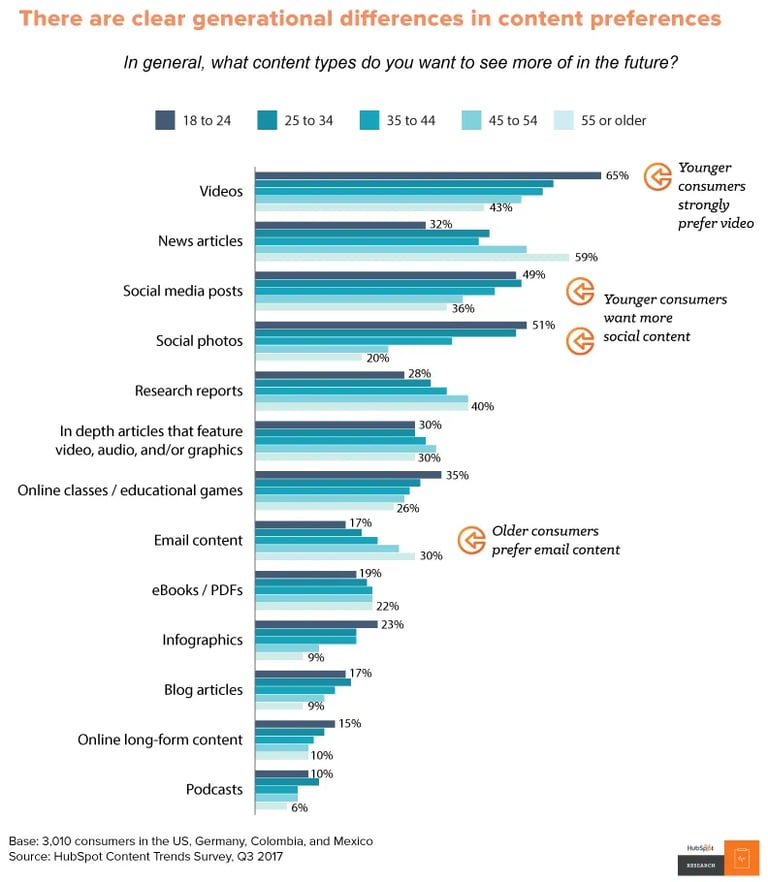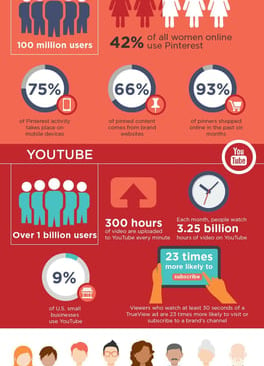Generational Marketing: How To Get it Right?
MARKETING
11/28/20247 min read
What is Generational Marketing?
This marketing approach segments the audience into different groups from a particular generation, then engages them with tailored or targeted messages just what they require or can relate with the company’s brand and value.
Generational Marketing helps narrow the funnel by getting in leads of a targeted audience (generation) with serving them based on specific traits, preferences, interests, lifestyle, technology usage, consumption of content, time constraints, and so on to name a few.
What makes generational marketing super effective?
Marketers know better how to target an audience effectively and why it is an important step for any business success.
To target and study, research the consumer market well, marketers have to oversee the process initiating as segmentation of the targets according to age groups through generational marketing.
It’s all about gaining and acquiring insights about what clicks a generation and forms their purchasing decision so that this approach could generate value through content and other services that is suitable for the consumers and increases sales by having better information about the generational group and outperforming the competitors.
What are different generational marketing groups?
Every generation connects, consumes, and engages differently concerning the technologies they’re accessing.
Let’s see the generation groups, the ways to reach them.
Baby Boomers (born between 1946–1964)
This generation group or ‘me generation’ prefers ads like direct mails and invites in easy format and access. They have good spending power.
Generation X (born between 1965–1980)
This group is a bridge between baby boomers and millennials. They make use of technology quite well and are mindful of their buying decisions.
Generation Y/Millennials (born between 1980–2000)
The group consists of huge users of social media and consume online content, more familiar with online purchasing, and are considerate too.
Generation Z/Boomlets (born 2000 onwards)
The group comprises youngsters, lovers of technology curious buds about social media. Marketers can make up a good opportunity and with easy to target techniques.
Why Omnichannel approach is best for multi-generational marketing?
The generational marketing approach is proven to acquire leads and produce better results via knowing what their customers require as well as how their environment, lifestyle plays the important role in influencing their purchase decision.
For this purpose and to interact with the wide segment of specific audience (generational group) based upon effective targeting, only finding them will not work out that well unless companies and marketers put in the effort to outreach and target those particular groups exactly where they’re in their buying journey and where they can be found using their preferred channel.
“Omnichannel Marketing” comes to the rescue for this, omnichannel approach could support generational marketing in a great way and is the most efficient source to connect with customers providing them a seamless experience via cross channels. Keeping up with customers connecting them at every touchpoint helps to get business and grow the customer base.
How Context, Targeting and Cohorts streamlines the generational marketing process?
Like other processes, systems run and are relevant to some aspects the same way this approach is formulated by marketing aspects.
CONTEXT.
The approach that has been applied to cater needs of each group has to be relevant as well as unique (as what kind of messages can affect/impact a particular group) as one kind of message cannot complete the purpose of a person from another group.
TARGETTING.
To attract and able to engage people from different generations needs planning and research about demographics, psychometrics, user preference, the technology used for effective targeting the group for favorable outcomes.
COHORTS.
This is referred to as a generational group based on segmentation with similar experiences, ideals, and values forming vital guidelines assisting marketers towards effective content marketing strategies.
The above aspects form the basis of generational marketing a pretty effective with the audience’s interest.
https://twitter.com/OMAN_ASB/status/1137429225256996866
Some of the Generational Marketing strategies.
Every marketing strategy is in one or another way affected by another strategy and supporting each other highly.
Generational marketing too affects people with their purchasing behavior and influencing user’s preferences.
Content marketing is prime when it comes to building and implementing a generational marketing strategy. Each generational group responds to a different message that matches their interests.
Let’s see some of their content consumption habits –
Baby Boomers: They like to read more in-depth articles and information but in a much formal tone, using technology to their best.
Generation X: They desire authentic and consistent communication that is more traditional for their needs, including personal well-being, financial security, and work-life balance to be met.
Millennials: Highly active on social media, use technology, online shoppers, desire personalized content, UGC and support brands with a specific message of a social and environmentally impactful cause.


Ways to target different generational groups.
Baby Boomers:
Facebook is the commonly used channel where they consume online content and news.
High-quality blog articles, reviews, and text contents.
Slow-paced informational videos are preferred.
Direct emails.
Discount coupons.
Generation X:
Facebook is mostly used, Facebook ads target the audience and work effectively.
Videos are more used than text contents.
Sending emails still does great.
Twitter is used for consuming content.
Quality blog helps generate ROI.
Millennials:
All social media apps and sites are used by millennials as they are tech-savvy and frequent online users.
Mobile marketing is a better option to reach them.
Videos on multi-channels interest and engages them well.
Content specifically user-generated content attracts millennials.
Generation Z:
Using every single social media channel and increasing their reach.
Video content is more popular.
Surveys and forms interest this group more.
Memes marketing attracts them.
Appreciates visuals and images, how to take appropriate shots. So visual photographs and art can be a great help for marketing.


Generational Marketing examples.
You know about the strategies and how specific generational groups can be attracted by and through which source and medium.
Let’s see how big companies made a success through generational marketing. Click here
Trends of Generational Marketing.
From baby boomers to Generation Z, every group’s interests, choices are different yet can go through change and adoption as changes and advent in digital technology and digital behavior.
This approach segments people based on age groups, their use of the internet, online activity, and purchasing behavior.
Let’s see how groups are embracing generational marketing and what trends can be noticed this far,
Digital use and online behaviors might be similar but can be experienced differently.
According to the customers survey about preference on in-store experience an online experience,
66% of consumers made purchases online often or very often.
60% of Gen Z and 59% of boomers stated often or very often (as gen Z because of no stable income and boomers lacking tech expertise).
74% of millennials, as well as 66% of gen X, stated often or very often because of the high-income level and expertise in technology.
Today living the digitized life, in-store purchasing is incomplete without any online search or assessment. The semblance of these two activities supports marketing activities and the customer’s journey as a whole.
Social Media is leveraged by all.
Social media is used only by young people, gone are the days of still assuming it.
95% of gen X and 82% of boomers are engaging on social media. Some trends can be drawn about using social media platforms where boomers are becoming Instagrammers, gen Z, and gen X becoming regular Facebook users, and Millennials using YouTube.
The income and gender factor.
When categorizing people into groups, genders and incomes could highly cause an impact. Gen X and Millennials mostly shop online as per the convenience of income and knowledge of technical know-how rather than boomers and Gen Z.
By gender, 67% of men purchases online as compared to 42% of women online encouraging marketers to look at the whole process holistically.
Everybody want is a seamless user experience.
If the user experience is not consistent then customers would willingly lose their confidence in your brand.
66% of people reported they’re fairly confident with making mobile purchases.
42% even leave the purchase decision when the experience is interrupted.
To execute successful marketing campaigns across generations, a seamless digital experience is necessary for getting good results.
Reference and Statistics taken from : Generational Marketing modern age insights


Possible challenges for Generational Marketing.
If you had read till now, you know how important is generational marketing’s role in acquiring potential leads with authentic communication and engagement. Though it has challenges to overcome, as the company’s efforts to provide customers the value.
More Creative Visual Ads.
Video contents and visuals are ruling all over the internet with overpowering text contents. For engaging consumers, marketers have to be more aware of graphics and how to make the message more appealing, effective, and go viral for outreach.
A step forward for Customer Service.
Companies should update the method of providing customer services indeed responsive services not only just in-person mode but in online mode too for maintaining its presence as people from any generational group find it more accessible and handy to file a complaint, solve a query or for additional information through brand’s social networks or either company’s website as well as want their doubts cleared within the earliest hour.
Brand contributing towards a social cause.
Today people want to connect with a brand that has a purpose to serve the community, not only serving their needs. If a brand isn’t implying a sustainable strategy or make products eco-friendly or not impactful enough, it might miss an opportunity to capture more leads.
These were some of the challenges forced by companies using generational marketing.
The Bottom line
Customer experience, as well as customer’s journey, would be evolving dynamically within coming years. Generational marketing encourages other marketing strategies as well as providing a personalized experience with efficient use of user persona and a suitable marketing approach.
Community
Company
Resources
© 2024. All rights reserved.


